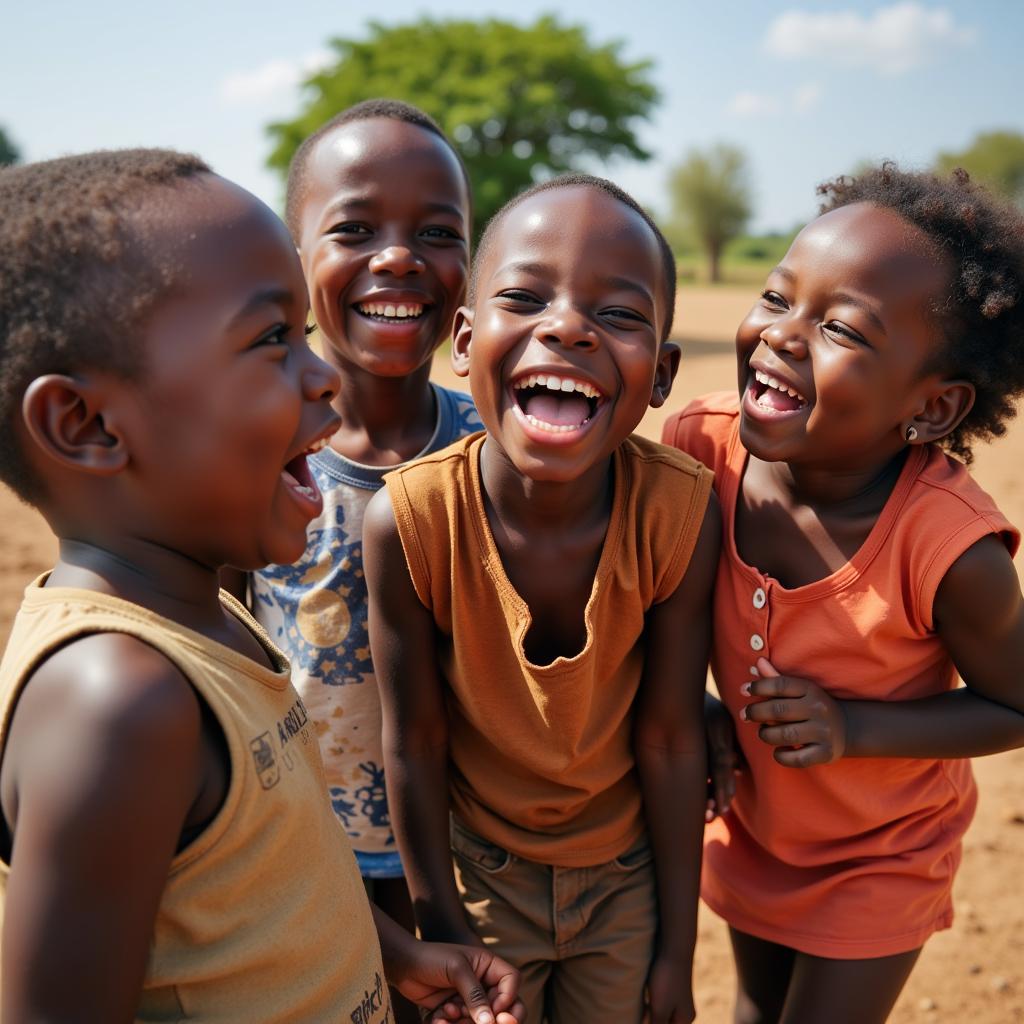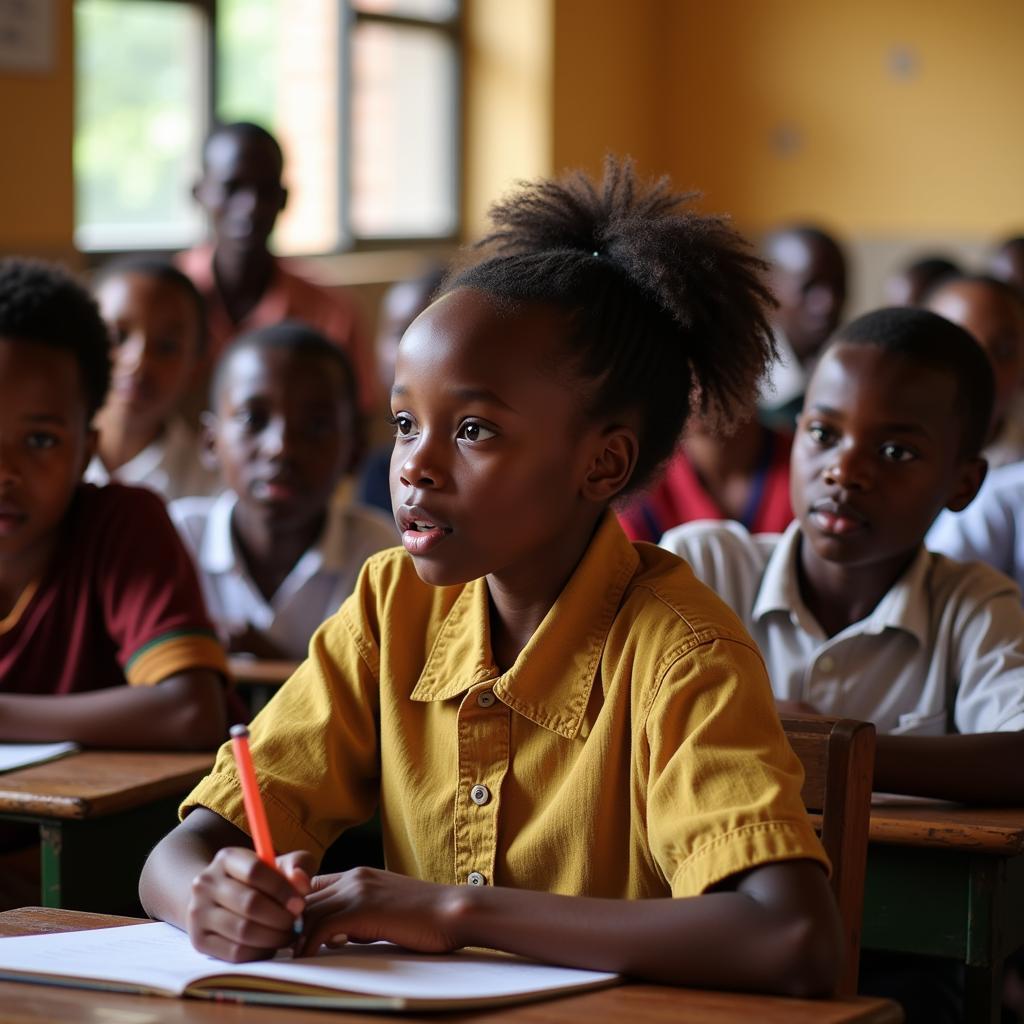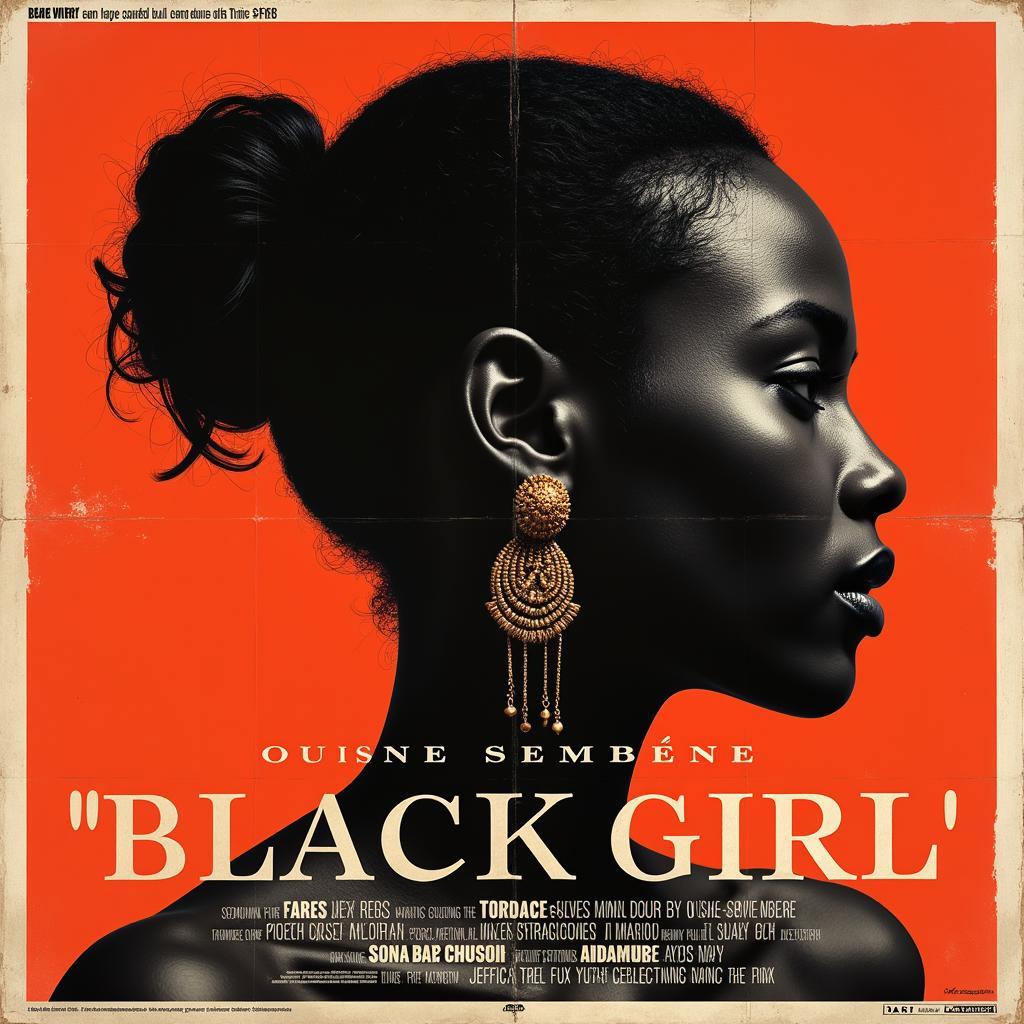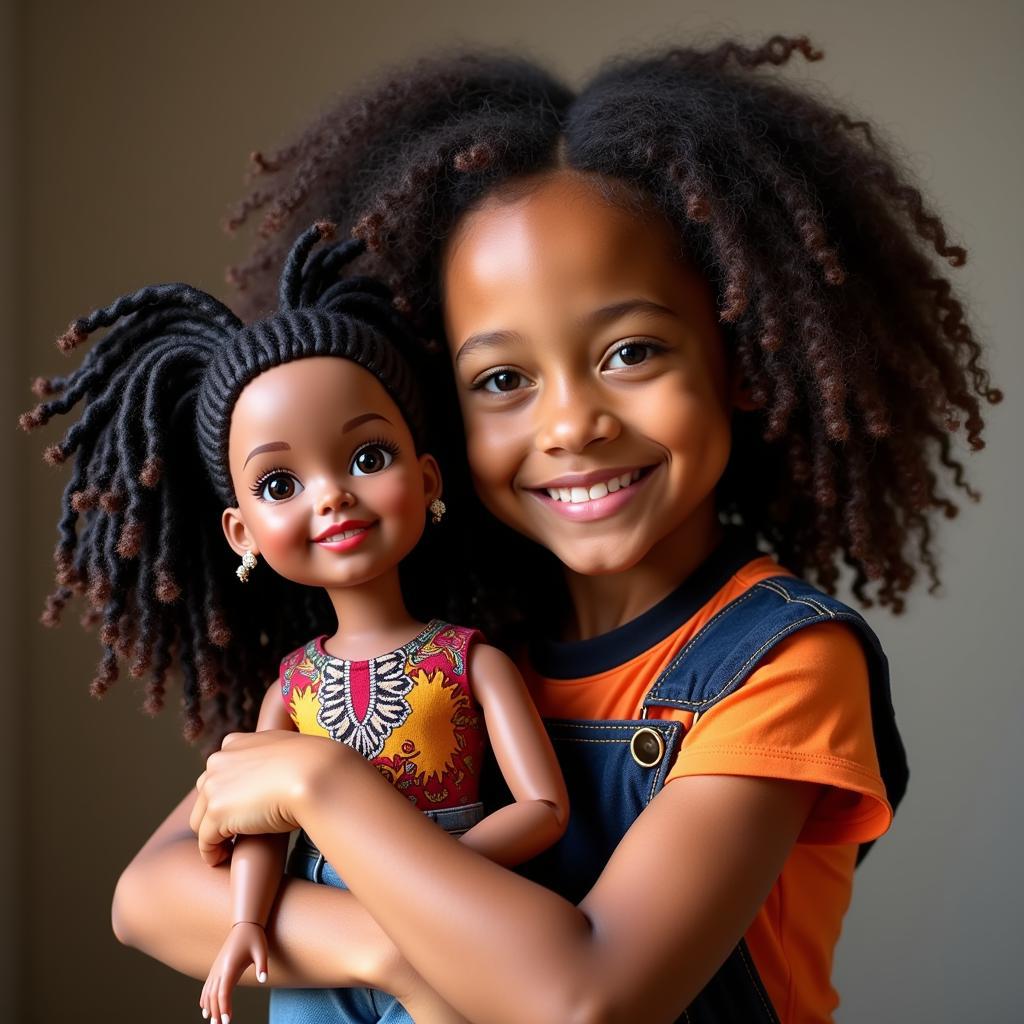A Glimpse into African Childhood Through Nelson Mandela’s Eyes
Nelson Mandela, a global icon of peace and equality, offered profound insights into the essence of African childhood. While his own upbringing in the rural village of Qunu, South Africa, provided a unique perspective, his words resonate with the experiences of many children across the diverse African continent. Join us as we explore the tapestry of “African Childhood By Nelson Mandela,” delving into the values, traditions, and resilience that shape young lives in Africa.
The Values Woven into an African Childhood
Mandela firmly believed that “our children are our greatest treasure. They are our future.” This belief is deeply rooted in African societies, where children are cherished and seen as a blessing. Family, community, and respect for elders form the cornerstone of an African upbringing.
Ubuntu: I am Because We Are
Central to the African worldview is the concept of “ubuntu,” a Nguni Bantu term that encapsulates the interconnectedness of humanity. It speaks to the belief that a person’s humanity is affirmed through their interactions with others. Children are raised with a strong sense of community, learning to share, cooperate, and value the well-being of others.
 Children Playing Together
Children Playing Together
Storytelling: Passing Down Wisdom Through Generations
Oral tradition is a powerful force in many African cultures. Storytelling, often accompanied by music and dance, serves as a means of transmitting history, values, and life lessons. From folktales about cunning animals to epic narratives of ancestors, these stories ignite imaginations and instill a sense of identity and belonging in young minds.
Respect for Elders: A Foundation of Wisdom
Respect for elders is paramount in African societies. Elders are revered for their wisdom and life experiences, serving as mentors and guides for younger generations. Children are taught to address their elders with respect, listen attentively to their counsel, and value their contributions to the community.
Education: A Key to Unlocking Potential
Nelson Mandela famously stated, “Education is the most powerful weapon which you can use to change the world.” He recognized that education was not merely about acquiring knowledge but about empowering individuals to reach their full potential and contribute to society.
 African Children Learning in a Classroom
African Children Learning in a Classroom
Overcoming Challenges: The Pursuit of Knowledge
Access to quality education remains a challenge in many parts of Africa. Yet, despite facing obstacles such as poverty, limited resources, and geographical barriers, African children often display remarkable resilience and determination in their pursuit of education.
The Power of Role Models: Inspiring Future Generations
Mandela, affectionately known as “Madiba” in South Africa, serves as an inspirational role model for countless African children. His life story, marked by perseverance, forgiveness, and a commitment to justice, teaches valuable lessons about the power of education, resilience, and the pursuit of a better world.
The Joys and Challenges of an African Upbringing
African childhood is a tapestry woven with both joy and hardship. While children often experience the warmth of close-knit communities, the richness of cultural traditions, and the beauty of their natural surroundings, they may also face challenges such as poverty, limited access to resources, and health concerns.
Resilience in the Face of Adversity
Despite these challenges, African children are known for their resilience and ability to find joy even in the face of adversity. They possess an innate ability to adapt, improvise, and find creative solutions to everyday problems.
The Importance of Play: Fostering Creativity and Imagination
Play is an integral part of childhood in Africa. Children often create their own toys and games using readily available materials, fostering their creativity and imagination. From simple games of hide-and-seek to elaborate role-playing scenarios, play provides a space for children to learn, socialize, and express themselves freely.
 African Children Playing Soccer
African Children Playing Soccer
Conclusion: A Legacy of Hope and Inspiration
Reflecting on “African childhood by Nelson Mandela” offers a glimpse into the values, traditions, and resilience that shape young lives across the continent. From the importance of ubuntu and the power of storytelling to the pursuit of education and the joy found in play, African childhood is a testament to the human spirit’s capacity for resilience, creativity, and hope. As Mandela aptly stated, “There can be no keener revelation of a society’s soul than the way in which it treats its children.” By nurturing and empowering the next generation, Africa holds the potential to shape a brighter future for itself and the world.



